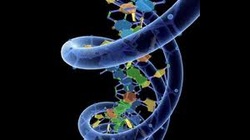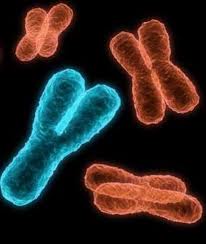A new study suggests women live longer than men partly because their immune systems age more slowly. The Japanese study set out to investigate the controversial question of whether age-related changes in the immune system could be responsible for the difference in average life expectancy between men and women.
A report in The Immunity & Ageing journal shows that as the body's defenses weaken over time, men's increased susceptibility to disease shortens their lifespan. The immune function protects the body from infection and cancer, but causes disease when not properly regulated.
 www.foxnews.com
www.foxnews.com One reason for that delay in onset of cardiovascular disease could be that young women, because of menstruation, are relatively iron-deficient compared to men. Iron plays a very important part in the reactions in our cells that produce damaging free radicals, which glom onto cell membranes and DNA, and may translate into aging the cell. In fact, in our diets, red meat is the main source of iron, and lack of iron is probably one major reason that being vegetarian is healthy for you. There was a very good study looking at the intake of red meat and heart disease in Leiden in the Netherlands: in regions where people didn't eat red meat, those populations had half the rate of heart attack and stroke compared to the populations that did eat red meat.
 www.shape,com
www.shape,com Of course, there are exceptions. Over time, a few men have done horrendous damage to themselves with smoking and drinking, yet they still reach 100. They might have the right combination of some really special genetic variations . In other words, longevity enabling genes. Meanwhile, other individuals may do everything right and only make it into their 80s.
It is a fact of life that men enjoy certain physical advantages over women. On average, men are stronger, taller, faster and less likely to be overweight. But none of these attributes seem to matter over the long haul. For whatever the physical virtues of maleness, longevity is not among them.
There are a few other reasons that men die earlier in life. Men in their late teens and 20s go through a testosterone storm. The levels of the hormone can be quite high and changeable, and that can induce some pretty dangerous behavior among young men. They don't wear their seatbelts; they drink too much alcohol; they can be aggressive with weapons and so on and so forth. These behaviors lead to a higher death rate.
Overall, about 70% of the variation around average life expectancy (just over 80 for women and just over 75 for men in the U.S.) is probably attributable to environmental factors like behaviors and exposures.
 www.straitstimes.com
www.straitstimes.com But, in general, there are three things men do worse than women. They smoke a lot more. They eat more food that leads to high cholesterol. And, perhaps related to that, men tend not to deal with their stress as well as women. They may be more prone to internalizing that stress rather than letting go. Stress plays a very important role in cardiovascular disease.
Throughout human history women have banded together for protection and mutual support. They care for each other in times of illness and even help each other tend for their young. They boost each others confidence, keep each others secrets, laugh and cry together. While their non-stop chatter can drive men crazy, it helps them keep women well.
Probably only 30% of longevity is due to genetics. And that's very, very good news. There's so much we can do. Most of us should be able to get into our late 80s. It's very much the case that the older you get, the healthier you've been during your lifetime.

 RSS Feed
RSS Feed






